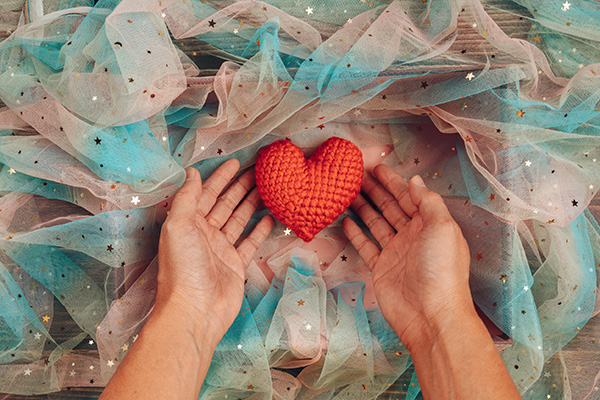criticism
Toxic Friendships: End It, Or Mend It?
 Like all relationships, friendships have their ups and downs, testing the bonds that bind us together.
Like all relationships, friendships have their ups and downs, testing the bonds that bind us together.
A true friend is someone who genuinely wants the best for you, celebrates your victories, and supports you through challenges. They offer encouragement, share your joys, and lend a sympathetic ear during difficult times.
The presence of true friends adds value to your life and fosters growth and positivity. You have a healthy friendship that thrives on mutual respect and care, where both parties feel uplifted and inspired to be their best selves.
In stark contrast, a toxic friend is often self-absorbed, putting their own needs and desires above all else. They manipulate situations to get what they want, with little regard for how their actions affect your happiness.
This type of friendship can feel draining, leaving you emotionally drained and questioning your self-worth. Instead of celebrating your achievements, a toxic friend may resort to jealousy or criticism, undermining your confidence.
Toxic friendships can deeply affect our emotional and mental well-being, often leaving us feeling drained and undervalued. These relationships are characterized by manipulation, constant criticism, and lack of support, creating an environment where one party consistently takes more than they give.
The dynamic can include jealousy, competition, or even emotional abuse, making it difficult to feel safe and authentic. Over time, toxic friendships can lead to diminished self-esteem and increased stress, underscoring the importance of recognizing and addressing these unhealthy connections.
Letting Go Of Guilt
 We all like to be seen as good people, and it can be deeply unsettling when others perceive us otherwise. When we find ourselves in a disagreement with a dear friend or colleague and take the blame for something we’re not responsible for, it’s natural to feel unhappy.
We all like to be seen as good people, and it can be deeply unsettling when others perceive us otherwise. When we find ourselves in a disagreement with a dear friend or colleague and take the blame for something we’re not responsible for, it’s natural to feel unhappy.
Spirit teaches that while it’s important to own our actions and the roles we play in conflict, guilt only serves to amplify feelings of remorse. If we allow guilt to fester, we may begin to believe that we are “bad” people who do not deserve happiness and success.
This is far from the truth. We are human, and human beings have the ability to change. Our actions may not always be right, but that doesn’t mean we are inherently bad or deserving of punishment.
Making mistakes is part of being human, and sometimes we need to adjust our responses, especially in challenging situations, in order to grow and improve. Spirit suggests that this is a much healthier perspective.
However, taking this “healthy approach” is often easier said than done. We’ve grown up in a world where elders, peers, and society define what is good and bad – even when they’re not always right. This can lead us to judge ourselves harshly and feel unnecessary guilt.
Many traditional spiritual teachings emphasize the importance of forgiveness, both of oneself and of others. In Christianity, for example, the concept of repentance is central; believers are encouraged to confess their sins, seek divine forgiveness, and then release their guilt, trusting that God’s grace has absolved them.
Embracing The Gift Of Empathic Insight
 Being attuned to the emotional energies of others is a beautiful gift that many spiritual individuals discover and enhance along their spiritual journey. This gift facilitates connection with others and provides insights into both others and ourselves.
Being attuned to the emotional energies of others is a beautiful gift that many spiritual individuals discover and enhance along their spiritual journey. This gift facilitates connection with others and provides insights into both others and ourselves.
While this empathic ability can bring profound understanding, it can also lead to anxiety. Feeling others’ emotions deeply may prompt self-reflection, causing concern about the impact of our actions on others and fear of judgment. Societal pressures become more intense, especially when expressing unconventional opinions, making those on a spiritual path feel isolated or misunderstood during a spiritual awakening.
How can we balance this empathic insight with personal expression and development?
Navigating meaningful relationships becomes challenging as our perspectives expand. Striking this balance requires self-reflection and working towards a more whole and heart-centered way of living.
Maintaining an open mind while expressing our own understandings is like a tightrope walk. We don’t want to become closed-minded, yet we need to articulate our perspectives and advocate for what we believe is right. A spiritual life is a journey of constant growth and understanding. Plateaus and challenges are part of the path, requiring breakthroughs to overcome.
Protect Yourself From Energy Vampires
 People have the power to either energize or drain us because we are all energetic spiritual beings in human form. This is especially true if you are highly sensitive and empathic.
People have the power to either energize or drain us because we are all energetic spiritual beings in human form. This is especially true if you are highly sensitive and empathic.
Energy vampires are people who mostly unintentionally drain or ‘steal’ the energy of others, leaving everyone they interact with feeling mentally, emotionally, physically and spiritually drained, even depressed.
Although they may not be intentionally malicious or evil, their dysfunctional personalities and toxic behavior patterns can have a detrimental effect on our health and well-being.
Energy thieves are everywhere, from the workplace to our social circles. Understanding their effects and protecting yourself from their toxicity is critical to mental and emotional well-being.
It is important to recognize the signs and patterns in your interactions with these people. There are many signs that you may be the victim of an energy vampire. Some of the most common indicators include feeling drained or exhausted, having a change in mood or energy level, or difficulty concentrating or making decisions after spending time with someone. You may also feel that you are always giving and never receiving from someone, or that you are being used or manipulated by them.
The Spiritual Importance Of Releasing Resentments
 I went out for lunch today and had a bad service experience with the waitress. It was as if she didn’t care much to listen to what I wanted. She seemed distracted and careless.
I went out for lunch today and had a bad service experience with the waitress. It was as if she didn’t care much to listen to what I wanted. She seemed distracted and careless.
Two and a half months ago, I had a similar experience at another restaurant when the server packed the wrong items for me to take home. I felt ignored, even disrespected. Today’s experience brought back the same feelings and memories.
I was so upset that I decided I was not going to leave her a tip. But then, in the middle of my meal, while feeling angry and somewhat sorry for myself, I overheard a nearby customer calling her friend by the same name as my late mother.
This caused me to pause and reflect on my toxic thoughts about the careless waitress. You see, my mother was also a waitress many years ago. It was how she put food on the table and put us through school.
Perhaps today’s events were meant to remind me during the holiday season how many of us go through life with unhealed “mother wounds.”
Spirit now had my attention and proceeded to make me aware that my waitress had her own issues with her mother growing up, and that she is now a single mother herself, barely making ends meet. This realization instantly changed my perspective and my petulant attitude.
Betrayal Blindness And The Family Scapegoat
 I have a good friend who was raised by a mother who constantly belittled and talked down to her. She never defended herself, because she grew up believing that she deserved her mother’s abuse, because something was wrong with her causing her to always say and do the wrong things.
I have a good friend who was raised by a mother who constantly belittled and talked down to her. She never defended herself, because she grew up believing that she deserved her mother’s abuse, because something was wrong with her causing her to always say and do the wrong things.
Once she graduated high school, she moved out of her mom’s house. Her life became much more peaceful for several years, until she started noticing that her brother was following in their mother’s footsteps by adopting the same kind of toxic, abusive language towards her.
It oddly became evident to her one year at Christmas time, when she gifted him a beautiful, crocheted blanket that she had been working on for many months and he rolled his eyes and made some disparaging remark about it. She then started noticing how pompous, ungrateful, and narcissistic he truly was. Growing up with him, she always assumed he just had bit of an ego or a macho attitude, but now that she had gained life experience and wisdom, she realized he was simply an abusive jerk.
Still, she chose not to criticize or judge him. In fact, she did the opposite, she encouraged his long-suffering partner to stay by his side and continue to support and love him, because she understood that he was also just a product of his upbringing, like herself. Meanwhile, he faithfully continued judging and belittling her. Because that is what he had seen their mother do all his life.
But one day, something inside her finally shifted. She had reached a point of no return and decided to start standing up for herself! Enough already.
